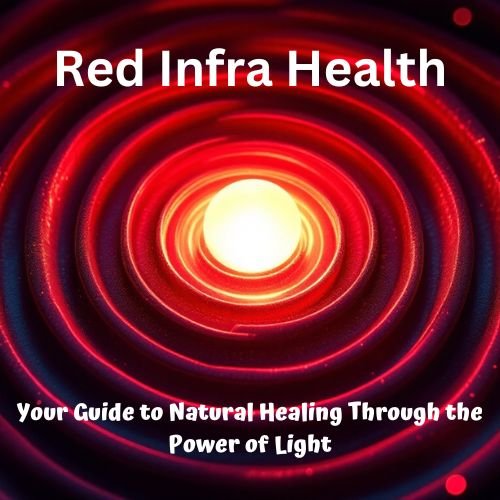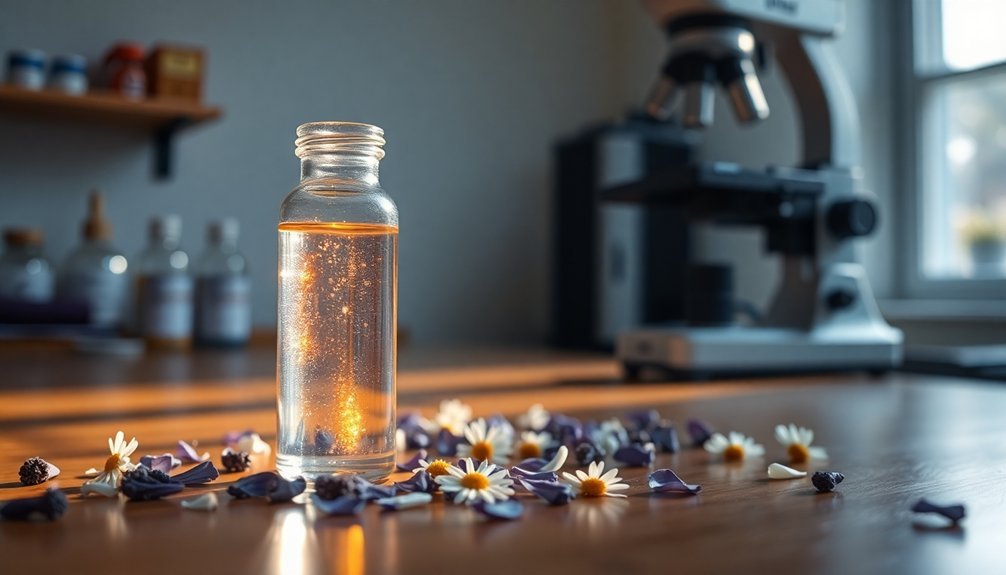Boosting your testosterone naturally starts with proven lifestyle changes. Focus on compound exercises like squats and deadlifts while lifting heavy weights 3-4 times per week. Get 7-9 hours of quality sleep each night in a cool, dark room. Eat foods rich in protein, healthy fats, and zinc – including eggs, fatty fish, and oysters. Manage your stress through meditation or nature walks, and maintain a healthy weight through regular exercise. Optimize your vitamin D levels through sunlight exposure or supplements, and minimize alcohol consumption. These seven strategies work together synergistically, and there's much more to understand about maximizing each approach.
Lift Heavy Weights Consistently

Building muscle through heavy weight training stands as one of the most effective natural ways to boost testosterone levels. When you lift heavy weights with proper form and intensity, your body responds by increasing testosterone production both immediately after exercise and over the long term.
For optimal results, your workouts should trigger a response from the hypothalamus and pituitary gland to stimulate testosterone production. Focus on compound movements like squats, deadlifts, and bench presses, as these exercises engage multiple muscle groups simultaneously and trigger the strongest hormonal response. You'll want to prioritize heavy weights with lower repetitions, as this high-intensity approach stimulates greater testosterone production than lighter weights with high reps.
To maximize your results, aim to train 3-4 times per week while progressively increasing your weights. Start with weights you can handle safely, and gradually build up intensity to avoid injury. Remember that proper form is vital – it's better to lift slightly lighter weights with perfect technique than to risk injury with weights that are too heavy.
Include both strength training and HIIT in your routine, as this combination optimizes testosterone production. You'll experience short-term spikes in testosterone after each workout, and with consistent training, you'll develop sustained elevated levels over time.
Focus on Quality Sleep
Your sleep quality plays a vital role in testosterone production, with levels reaching their peak during your nightly rest and dropping when you wake up.
If you're sleeping less than 5 hours per night, you could be lowering your testosterone by 10-15%, which is equivalent to aging a decade or more.
To maximize your hormone production, stick to a consistent sleep schedule, keep your bedroom dark and cool, and aim for 7-9 hours of quality sleep each night. Getting proper sleep is especially important since obstructive sleep apnea can significantly decrease testosterone levels and lead to various health complications.
Sleep Impacts Hormone Production
Getting enough quality sleep can make or break your testosterone levels. Your body produces most of its testosterone during sleep, particularly during REM and slow-wave sleep stages. When you don't get enough rest, your testosterone levels can drop by 10-15%, affecting everything from your mood to your muscle mass.
| Sleep Factor | Impact on Testosterone |
|---|---|
| Duration | 7-9 hours ideal; less than 5 hours reduces T by 10-15% |
| Sleep Stage | Peaks during first REM cycle |
| Consistency | Regular sleep schedule maintains hormonal balance |
| Quality | Deep sleep essential for peak production |
| Disruption | Poor sleep increases cortisol, decreases testosterone |
You'll want to prioritize both quantity and quality in your sleep routine. If you're sleeping less than seven hours, you're likely compromising your testosterone production. Additionally, irregular sleep patterns can disrupt your body's natural hormone production cycle. Research shows the lowest testosterone levels occur between 2 PM and 10 PM during sleep-restricted days. When you establish consistent sleep habits, you'll support peak testosterone levels throughout the day. Be careful not to oversleep, though – more than 9.9 hours can negatively impact your hormone levels. Focus on maintaining a regular sleep schedule to maximize your body's natural testosterone production.
Optimize Your Sleep Schedule
Consistently enhancing your sleep schedule stands as one of the most powerful ways to boost testosterone production naturally. Your body produces most of its testosterone during sleep, particularly during REM cycles, and sleeping less than 7 hours can slash your levels by 10-15%. For young men, this reduction equals aging 10-15 years hormonally.
To maximize your sleep quality, establish a consistent bedtime routine and create an ideal sleep environment. Keep your bedroom dark, quiet, and cool. Maintain temperatures between 60-67°F for optimal sleep conditions.
You'll want to avoid screens at least an hour before bed, as blue light can disrupt your natural sleep patterns. Skip late-day caffeine, alcohol, and naps that might interfere with your nighttime rest.
If you're struggling with sleep, take immediate action. Poor sleep creates a dangerous cycle – low testosterone disrupts sleep, and poor sleep further reduces testosterone.
Focus on regular physical activity, maintain a healthy weight, and address any sleep disorders like sleep apnea. When needed, don't hesitate to consult a sleep specialist.
Eat Testosterone Boosting Foods

You'll want to include rich protein sources like fish, eggs, and lean meats in your diet since they provide essential building blocks for testosterone production.
Adding foods with healthy fats such as avocados, olive oil, and fatty fish can substantially impact your hormone levels, as these fats are vital for testosterone synthesis.
Combining these protein-rich foods with healthy fat sources creates a superior nutritional foundation for supporting your body's natural testosterone production.
Rich Protein Sources Matter
The right protein sources can substantially boost your testosterone levels and overall hormonal health. High-quality proteins from lean beef, chicken, and fish provide essential building blocks for hormone production, while plant-based options like tofu and nuts offer alternative sources that support testosterone synthesis.
You'll want to prioritize eggs, which contain both dietary cholesterol and monounsaturated fats essential for testosterone production. Oysters deserve special attention due to their high zinc content, which directly impacts testosterone levels and fertility.
Don't overlook beans and legumes – they're packed with protein and zinc, making them excellent choices for hormone optimization.
To maximize testosterone production, you'll need to pair protein-rich foods with others that support hormone health. Include leafy greens like spinach and kale for their magnesium content, and add Brazil nuts for selenium.
Incorporate garlic and onions, which contain compounds that stimulate testosterone production. Remember to maintain a balanced diet with adequate healthy fats from sources like avocados, as low-fat diets can decrease testosterone levels.
You'll get the best results by combining these protein sources with resistance training and high-intensity interval training.
Foods With Healthy Fats
Building ideal testosterone levels requires a solid foundation of healthy fats in your diet. Studies show that low-fat diets can decrease testosterone by up to 15%, making it essential to incorporate the right fats into your meals.
You'll want to focus on foods rich in monounsaturated and healthy saturated fats, which serve as building blocks for hormone production.
Start by adding olive oil to your meals, as it's proven to boost testosterone more effectively than butter while protecting your heart. Include avocados and nuts in your diet; they're packed with beneficial fats that enhance hormone production and reduce cardiovascular risk.
Don't forget fatty fish like salmon and tuna, which provide essential vitamin D for peak testosterone levels.
Include eggs in your daily routine, as they contain critical cholesterol and fatty acids that support hormone health. Brazil nuts and pumpkin seeds deserve special attention for their selenium and zinc content, respectively.
When it comes to meat, moderate portions of both red meat and fatty poultry can provide the necessary nutrients and fats for testosterone production.
For the best results, consider adopting a Mediterranean-style diet that emphasizes these healthy fat sources while maintaining overall dietary balance.
Manage Your Stress Levels
Stress can wreak havoc on your testosterone levels by triggering the release of cortisol, a hormone that directly interferes with testosterone production. When you're chronically stressed, your body creates a vicious cycle: higher cortisol leads to lower testosterone, which in turn can increase your stress levels even further.
To break this cycle, you'll need to actively manage your stress through proven techniques. Start by incorporating mindfulness practices into your daily routine, such as meditation or taking walks in nature.
Make sure you're getting at least seven hours of quality sleep each night, as proper rest is essential for both stress reduction and testosterone production.
Regular exercise is particularly effective, as it not only reduces stress but also naturally boosts testosterone levels through the release of endorphins. You can further support your hormone balance by focusing on a diet rich in protein and healthy fats, while maintaining a healthy weight.
If you're concerned about your testosterone levels, don't hesitate to consult a healthcare provider who can test your hormone levels and recommend appropriate treatment options. They can help you develop a detailed plan that addresses both stress management and testosterone optimization.
Red Light Therapy Benefits

Emerging as a promising natural treatment, red light therapy offers a scientifically-backed approach to boost testosterone levels. By combining specific wavelengths of red and near-infrared light (630-900 nm), this therapy targets your body's Leydig cells and activates photoreceptor proteins in your testes. The result? Enhanced testosterone production and improved cellular energy through increased ATP production.
Clinical studies have shown impressive results, with participants experiencing testosterone increases from 2.1 ng/ml to 3.6 ng/ml in just two weeks.
You'll also benefit from improved sexual satisfaction, enhanced sperm motility, and increased muscle mass. The therapy's optimization of mitochondrial function supports your body's natural testosterone production while promoting better sleep and cognitive function.
- Picture yourself basking in a warm, red glow as the therapy penetrates deep into your tissues
- Imagine your cells becoming energized as ATP production kicks into high gear
- Visualize your testosterone levels rising as Leydig cells respond to the therapeutic light
- See yourself gaining muscle mass and strength more effectively during workouts
- Feel your energy and liveliness increasing day by day with consistent treatments
Optimize Your Vitamin D
While red light therapy targets your cells directly, vitamin D works as a powerful hormone that triggers your body's natural testosterone production. Research shows that when you're deficient in vitamin D, your testosterone levels can drop substantially, as this essential nutrient directly stimulates testicular tissue to produce testosterone.
You can optimize your vitamin D levels through three main sources: sunlight, food, and supplements. Spend at least 15 minutes in direct sunlight daily, and include vitamin D-rich foods like salmon, fatty fish, and fortified dairy products in your diet.
If you're deficient, supplementation might help boost your testosterone levels, though it's most effective for men with severe vitamin D deficiency.
It's important to note that vitamin D supplementation won't necessarily increase testosterone in healthy men with normal vitamin D levels. However, if you're deficient, addressing this shortage could improve both your testosterone production and overall health.
Low vitamin D isn't just linked to reduced testosterone – it can also lead to osteoporosis and muscle loss. Consider getting your vitamin D levels tested to determine if you need to increase your intake through any of these methods.
Balance Your Training Recovery

Physical recovery forms the cornerstone of testosterone optimization during training. Your body needs adequate time between workouts to repair muscle tissue and regulate hormonal responses effectively.
When you balance intense training sessions with proper recovery periods, you'll maximize your testosterone production while minimizing the risk of overtraining.
To enhance your recovery and maintain healthy testosterone levels, you'll need to focus on both the intensity and frequency of your workouts. Incorporate progressive overload in your resistance training, but don't push yourself to exhaustion in every session. Your body responds best to varied training stimuli combined with strategic rest periods.
- Picture yourself completing a challenging set of deadlifts, then giving your body 48 hours to rebuild and strengthen
- Envision following an intense workout with a protein-rich meal within 30 minutes
- Visualize getting into bed by 10 PM for 8 hours of uninterrupted sleep
- See yourself alternating between high-intensity days and active recovery sessions
- Imagine tracking your energy levels and adjusting your training volume accordingly
Remember: recovery isn't just about rest – it's about creating the ideal environment for your body to produce and utilize testosterone effectively.
Frequently Asked Questions
Can Testosterone Levels Be Affected by the Time of Day I Exercise?
Yes, your testosterone levels are substantially affected by workout timing. You'll get better results exercising in the late afternoon when your cortisol is lower and your body temperature reaches its highest point for maximum strength gains.
Does Having More Muscle Automatically Mean Higher Testosterone Levels?
No, having more muscle doesn't automatically mean higher testosterone levels. While testosterone helps build muscle, your muscle mass can stay elevated even with lower testosterone once you've built it through consistent training.
How Do Environmental Toxins Impact Natural Testosterone Production?
Environmental toxins like BPA, phthalates, heavy metals, and pesticides can substantially lower your testosterone. You'll face exposure through plastics, polluted air, and non-organic foods, disrupting your body's natural hormone production system.
Can Intermittent Fasting Help Increase Testosterone Levels Naturally?
You'll find mixed results with intermittent fasting's impact on testosterone. While it can boost levels in overweight individuals through weight loss, it might decrease testosterone in lean, active men. Consider your body composition first.
Do Cold Showers and Ice Baths Boost Testosterone Production?
While you might hear mixed claims, cold exposure's effect on testosterone isn't clear-cut. You'll see varying results, as studies show both increases and decreases. It's highly individual, but regular cold exposure may help some people.
In Summary
You've now got seven powerful, natural methods to boost your testosterone levels. By implementing these strategies – from heavy lifting to stress management – you'll create a vital environment for hormone production. Don't expect overnight results, but if you're consistent with these practices, you'll likely see improvements in energy, muscle growth, and overall vitality. Start small, build sustainable habits, and let your body respond naturally.





Leave a Reply